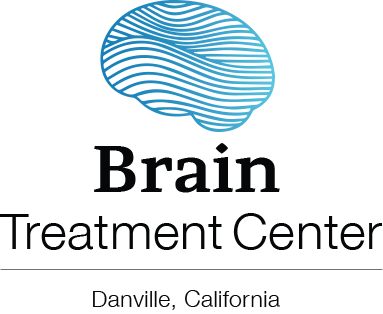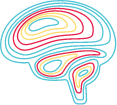
Sports Recovery & TBI
Sports Recovery & TBI
As an athlete, your physical and mental requirements are off the chart. Impacts to the head can cause athletes to suffer from cognitive impairments such as memory loss, increased impulsivity, aggression, sensitivity to light and negative effects on and off the field.
Repeated hits to the head, sleep deprivation, poor diet, chemical dependency, stress and other factors may take away your cognitive edge. If this happens, we can help by identifying the areas of your brain that may be affected and target those areas with our MeRT individualized treatment protocol. Typically, we can help optimize brain performance so you can be at your best at home and on the field.
Symptoms of decreased cognitive performance are:
- Memory loss
- Increased impulsivity
- Aggression
- Sensitivity to light
- Negative effects on and off the field
- Depression/anxiety
- Reduced ability to handle stress
- Poor concentration
- Burnout
- Lack of focus
Conventional Treatments for Sports Recovery
Often, a physician will treat sports related head trauma with medication. However, some people have adverse effects from taking medication, and other therapies aren’t enough to overcome their injuries.
MeRT
Here at Brain Treatment Center in Danville, we offer MeRT for Sports Recovery. This is a unique version of TMS (Transcranial Magnetic Stimulation), with a far more individualized approach to brain modulation. We tailor treatment to the patient’s needs based on frequency, location, and magnetic power used. TMS modulates the brain’s electrical activity by using magnetic fields which pass through the scalp from an electromagnetic coil. This process is non-invasive and painless. Research studies show that this type of treatment is promising for Sports Recovery.
Most TMS treatments deliver stimulation to one area of the brain at a fixed frequency for all patients. MeRT, however, is more evolved. We carefully analyze a patient’s initial testing as to the brain’s pattern of function and activity. We then use this information to devise a highly personalized protocol for each patient, with the purpose of encouraging improved brain communication. Patients have indicated that they have experienced significant clinical improvements.*
Treatment for Sports Recovery usually lasts four to eight weeks, but can be ongoing. Appointments are 30 to 45 minutes long, Monday through Friday. Generally, the patient will begin to notice improvements during the first week.
While the FDA has cleared the equipment used for MeRT in the treatment of depression that has been resistant to medications, it may also be used off-label for other disorders in the practice of medicine.
Studies have shown altered brain wave oscillations in patients suffering from conditions such as Major Depressive Disorder (MDD), Autism, Traumatic Brain Injury (TBI), Post-Traumatic Stress Disorder (PTSD), Anxiety, and more. MeRT treatment protocol uses a magnetic field to balance and stimulate brain function. The technology involves using sophisticated diagnostics and imaging to customize the treatment for each individual. We then tailor a personalized protocol based on the location, frequency, and amount of power used by the magnet, specific to each person’s unique condition. As a result, MeRT can improve brain communication and synchronization and can lead to significant and long-lasting improvements.
Much of the initial MeRT research has been done by the U.S. Department of Defense for veterans returning from combat. There is an article that was published in Defense One that further explains the DOD’s research and the benefits that MeRT has been shown to have on people suffering from TBI, PTSD, and MDD. Additional studies have been completed in the private sector on other conditions.
MeRT Treatment for Sports Recovery: What to Expect
For the initial analysis, you will come in for a comprehensive testing appointment. We will gather your new patient paperwork and then our neuro technician will perform a qEEG and EKG, which will enable us to identify any dysfunction or communication problems in your brain.
This appointment usually takes about 45 minutes. Should you decide to proceed with treatment, we will schedule your assessment period. Your second appointment is also 45 minutes long. During this time, you will meet with a provider for a clinical evaluation. The provider will answer any questions you may have and discuss your applicable treatment plan.
Assessment Period
The assessment period of treatment lasts for two weeks, and will help you, and us, determine how you are responding to treatment. At the end of the assessment period, we will perform a second qEEG to note any changes occurring in your brain.
The first week will be Monday through Friday, and the second week, Monday through Thursday, nine sessions in total, followed by a repeat qEEG to determine progress.
Continuing Treatment
Once the assessment period is complete, and we are seeing progress both clinically and on the qEEG, we will schedule subsequent two-week treatment periods.
The comparison between the initial and second qEEG/clinical evaluation will determine if you are responding. You should also start to experience changes in the way you are feeling during this time. We highly advise a total of six weeks of treatment (which includes the assessment period) for optimal and long-lasting results.
Since each brain is unique, the protocol will be different for each patient as it is based on specific qEEG/EKG data from your brain, and the specific condition being treated. Generally, the results of treatment can last a lifetime, though some people prefer occasional follow-up treatment as needed. But each person is different, and protocols may vary. Your provider will have regularly scheduled follow-up EEGs and meet with you to gauge your progress.
Additional Information
A typical treatment session takes about 45 minutes. You will sit in a chair while the neuro technician administers the treatment near the scalp via a magnetic coil. The gentle magnetic impulses are delivered for six to eight seconds each minute. You may feel a slight sensation while the treatment is occurring, but it is not painful or uncomfortable.
Please note that results and improvements are based on active and strict observation of our regimens. Results may vary based on the individual users and are not guaranteed. Additionally, the results of therapy can vary per individual. In general, the longer the length of MeRT therapy, the longer the changes remain.

NFL Athletes
I can honestly say my brain is in a better place than it was before
“I’m two or three months past my last treatment, and I can honestly say my brain is in a better place than it was before. The emotional highs and lows I was living with have been stabilized. My cognition took off during that period and it hasn’t slowed down since.”
Nick Hardwick (Retired NFL Center, Chargers)


